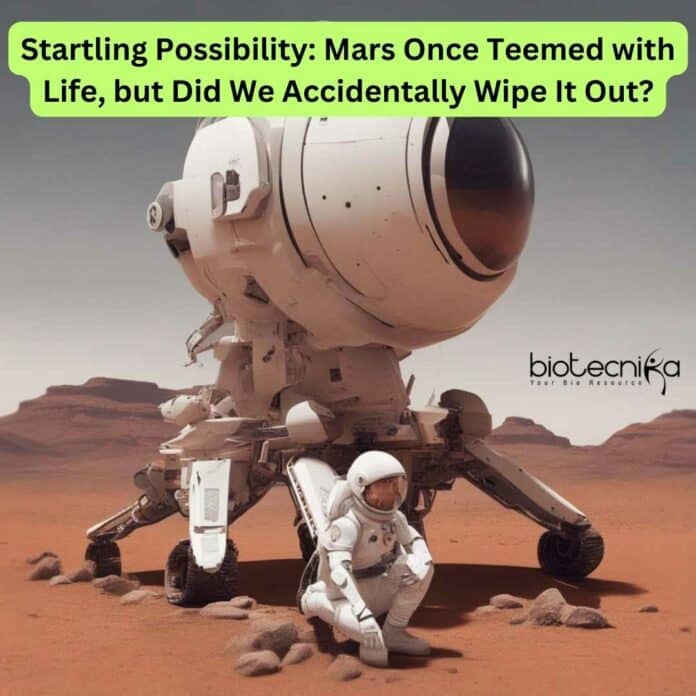Life on Mars Destroyed Accidentally By Humans
In our hunt for extraterrestrial life on Mars, a groundbreaking discovery might have slipped through our fingers, and we might have been the cause. Delve into the story of how a potential encounter with Martian life decades ago might have gone awry.
Back in the 1970s, when the Viking landers became the first successful US mission to explore Mars, we could have been on the verge of a major revelation.
Astrobiologist Dirk Schulze-Makuch from the Technical University Berlin suggests that we might have encountered life in a sample of Martian soil during those early days. However, our attempts to investigate it might have unintentionally eradicated it.
Schulze-Makuch highlights the possibility that our methods for detecting microbial life on Mars could have been inadvertently deadly. In a piece he penned for Big Think, he speculates that our very actions might have disrupted the Martian ecosystem.
This underscores the importance of meticulously considering Mars’ environment when designing future research endeavours. Schulze-Makuch strongly advocates for a dedicated mission focused on the search for Martian life, designed with these crucial factors in mind.
Back in 1976, the Viking landers had an array of goals, including a series of experiments aimed at examining Martian soil for biosignatures—molecules that could hint at the presence of life.
Remarkably, these early Viking experiments remain the only biological investigations performed on Mars to date.
One such experiment, the gas chromatograph-mass spectrometer (GCMS), detected chlorinated organics. At the time, this was attributed to potential contamination from human-made cleaning substances, thus negating any potential biological indications.
It has since been revealed that Mars naturally contains chlorinated organics, but their origin—whether biological or non-biological—is still uncertain.
Recent speculation has arisen regarding the damaging effects of the Viking biological experiments. The GCMS involved heating samples to separate their components. Subsequent analysis proposes that this process could have incinerated the very organic compounds it was designed to discover.
Schulze-Makuch now posits that other experiments could have similarly wiped out crucial evidence. The labeled release and pyrolytic release experiments, for instance, subjected Martian samples to liquid infusion and then examined the outcomes for signs of metabolism and photosynthesis, respectively.
Curiously, these experiments generated positive signals, which contrasted the null findings from the gas exchange experiment. This inconsistency continues to baffle researchers.
Schulze-Makuch suggests that the release experiments were potentially flawed from the start. They assumed that Martian life would thrive in water-rich environments, akin to Earth’s conditions. However, as we now know, life can adapt to extremely arid conditions, which describes Mars accurately.
Altering these circumstances could have inadvertently halted any thriving life forms.
He draws a relatable analogy: “Imagine pouring water over desert-adapted creatures. It might be similar to drowning them rather than saving them.”
Surprisingly, the signs of life detected in the pyrolytic release experiment were more pronounced in the dry control samples, which received no additional water. This raises an intriguing question: Did these experiments uncover signs of life that we prematurely dismissed?
It’s crucial to emphasize that these signals are far from conclusive and often contradictory. Nevertheless, they might warrant a closer examination.
Back in 2007, Schulze-Makuch proposed that Mars might harbor life adapted to dry conditions, possibly utilizing hydrogen peroxide. He and co-author Joop Houtkooper contend that the Viking results do not necessarily counter this notion.
“As I’ve argued previously, we urgently need a new Mars mission focused primarily on detecting life to put this hypothesis and others to the test,” Schulze-Makuch concludes. “The prospect of such a mission fills me with anticipation.”
Life on Mars Destroyed Accidentally By Humans























